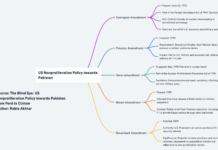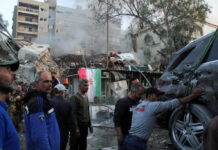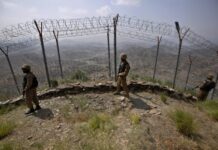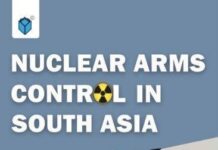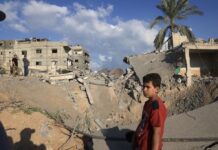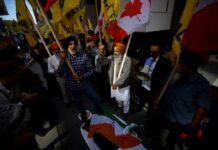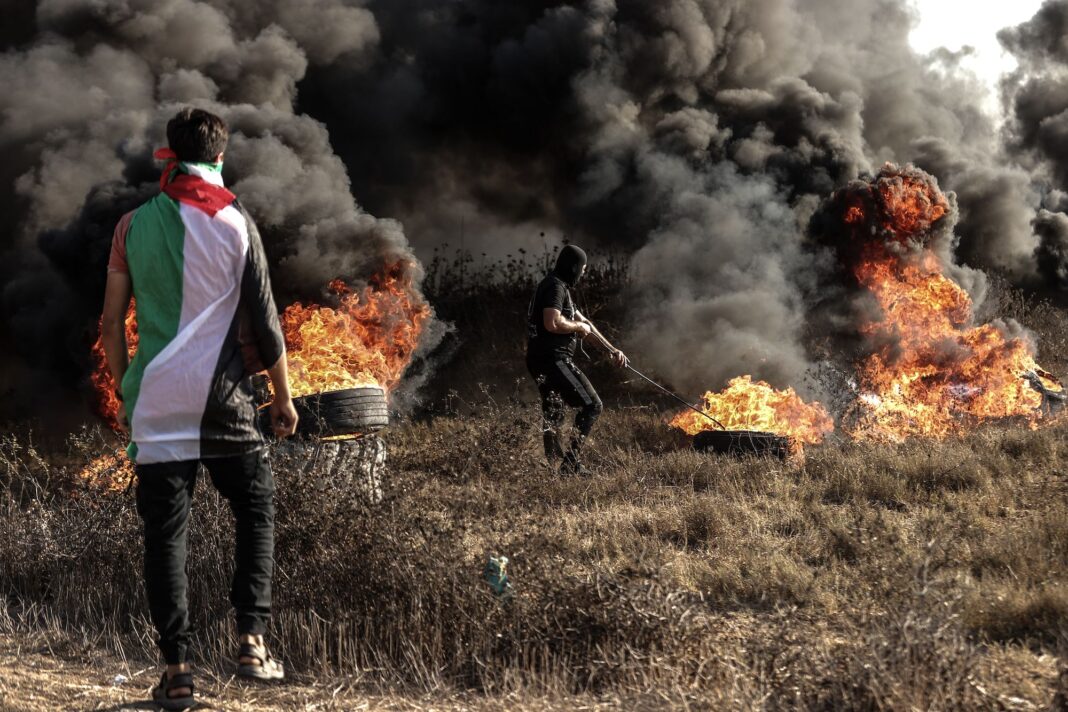Muhammad Shareh Qazi
The ongoing spell of hostilities between Hamas and Israel is diminishing all the prospect of peace in the Levant. The continuous disregard of the rules of war, grotesque human rights violations, and a complete breakdown of diplomatic interventions are just some of the tragedies befalling the people of Levant. Hamas launched a military operation that now seems a manifestation of its biting more than it can chew. Traditional partners like Hezbollah are indecisive about joining the conflict and Mahmoud Abbas has denounced any allegiance to Hamas as a representative of the Palestinian people. This political disarray is further exacerbated by Benjamin Netanyahu’s complete disregard for human rights in conducting airstrikes against Gaza amid his own fragile political position and a pending trial against corruption charges following protests against his judicial reforms. From a distant standpoint, it seems that Hamas and Netanyahu ended up creating a diversionary war that benefitted no one but hit innocent civilian populations the hardest. It is important to take stock of intentions and expectations set by each party and how their behaviors are ripping apart any possibility of a Two-State Solution. Whether each party is aiming at a Ukraine-style attrition ,or preparing for a quick victory, neither approach will be sufficient in achieving success. Hamas aims at staying strategically and politically relevant while Israel, under Netanyahu, is culling political instability with a triumphant campaign against its traditional rivals. For regional and global stakeholders, such a synergy of violence between Israel and Hamas makes intervention impossible. After this war subsides, the prospect of diplomatically pressing for a Two-State Solution will hinge on where Gaza ends up.
Hamas and a Pyrrhic Victory: Finding Relevance Beyond the State of Palestine
After the Oslo Accords, there was a clear fragmentation between the Palestinian National Authority (PNA) and Hamas over who represents the people of Palestine. The current conflict is peculiar as Hamas initiated an operation into Israeli-occupied territories, resetting the clock on how Gaza, the West Bank, and Israel coexisted. The Fatah-Hamas reconciliation and the reunification of West Bank and Gaza Strip have been farfetched since 2007. Also, it seems that this operation was meant to keep Hamas relevant beyond an uneasy compromise between the governments of Mahmoud Abbas and Netanyahu. For Mahmoud Abbas, dissociating from Hamas is different from distancing from Gaza. His long bet seems to be his acquiescing to his current position while pushing for full membership in the United Nations following Palestine’s decade-long position as an Observer State. If the PNA is able to curry favor from Tel Aviv by denouncing any relations with Hamas and ends up creating its own version of a Two-State Solution, it can push for acquiring Gaza under a similar arrangement. For Hamas, this means being politically and strategically irrelevant in the region, a situation that it cannot afford given how the group itself is considering to push for legitimacy through Gaza.
This means that Hamas, PNA, and Israel will end up creating three separate states with an uneasy peace. Launching an operation devoid of any strategic direction seems to be an attempt where Hamas assumed that neighboring states and organizations will follow suit, allowing it to force a settlement with its political position in Gaza. Seeing how none of the traditional associates has offered considerable assistance, Hamas has now pushed itself towards a Pyrrhic victory where its shock operations against Israel have yielded less than it had hoped for. Now, Hamas is left with the option to wait for Israel to launch a ground offensive which it hopes will fall prey to attrition. Air cover in Gaza’s small territory amid a ground offensive will be limited. Therefore, Hamas expects to endure the ongoing air assault by consolidating its forces and equipment for future use. Even if this strategy works, the initial airstrikes have devastated Gaza to the point where Hamas will eventually end up sharing the blame as it drew first blood.
A Carthaginian Peace in the Levant?
Netanyahu has remained a controversial figure in Israel since 2016, with indictments weakening his political position immensely. Though his trial is still pending and the charges leveled against him still active and in the field, the situation in Gaza and his response seem more diversionary than proportional. If Netanyahu is able to divert attention from his domestic political fragility towards a victory against Hamas, it would still leave questions about intelligence failure and Hamas’ ability to strike so effectively. By aggressively intervening in Gaza and adopting brinkmanship against neighboring states through massive deployments on their borders, Netanyahu will push to capture territory in Gaza, or compress the West Bank to denounce its political claims over Gaza for Israel to push for legitimate claim. If Netanyahu can defeat Hamas, or at least neutralize its retaliatory capacity, he can consolidate control over Gaza. Conversely, if the West Bank retaliates against Israel, Netanyahu will open a second offensive and force PNA into a Carthaginian peace through reparations and diplomatic support. Netanyahu is cognizant of Mahmoud Abbas and his fragile political position and is also aware that Abbas will avoid any prospect of his being equated with Hamas. For Israel, if Palestine is divided between two separate entities claiming legitimacy, it will continue to command a stronger position and a favorable two-state status quo. By threatening a large-scale ground offensive, unabated use of indiscriminate airstrikes, and rallying for international support, Israel aims to minimize Hamas’ influence and push PNA to a weaker position, thus cementing its position in the region. For Netanyahu, Operation Al-Aqsa Flood serves as a diversion from his fragile and narrow government formed after the 2022 elections. Even though the IDF has kept its operations specifically targeted at Gaza while keeping its intentions against West Bank fairly murky and appears to have signaled a restraint against Mahmoud Abbas-led part of Palestine, anti-Netanyahu bloc in the Israeli Knesset will avoid political confrontation in the current situation. This will help Netanyahu consolidate his position in his own party. Avoiding a ground offensive and relying on airstrikes instead of surgical strikes through Unmanned Combat Aerial Vehicles (UCAVs) give Netanyahu a chance to prolong the war till his political woes become overshadowed. Netanyahu understands that a ground offensive is exactly what will trigger escalation and bring new entrants. That said, a threat of ground offensive means international stakeholders will remain divided on choosing a course of action.
When the Dust Settles: The Aftermath and Future in the Levant
Whether we equate Hamas’ operations to the Ghetto Uprisings of 1943 where Jewish resistance in the Warsaw Ghetto retaliated against Nazi oppression, or whether we see airstrikes and indiscriminate bombardment by the IDF as collective punishment for Operation Al-Aqsa Flood, nothing explains or justifies a steadily rising death toll of noncombatants. Threats of a ground offensive against Gaza and mass exodus of Palestinians to neighboring states are factors that will prolong this war. Triggering such a volatile situation for political and strategic relevance is one of the worst strategies and should be internationally denounced without prejudice to diplomatic commitments. Sanctioning unabated violence against noncombatants is neither a cogent military strategy nor an acceptable position as per international law. Collective punishment, use for force against civilian targets, indiscriminate use of disproportionate force against noncombatants, laying siege, and restricting humanitarian assistance are all war crimes currently being committed in the region. Delays in finding an international solution, or at least a ceasefire mean that regional and global stakeholders have not yet sought consensus, something which could add more participants to the ongoing catastrophe. If the current conflict turns into yet another Arab-Israel war, its cumulative impact amid other international conflicts will reset regional and global power dynamics.
Also, even if Hamas was able to regain political and strategic relevance by a surprise offensive through Operation Al-Aqsa Flood, or Israel, under Netanyahu, has taken a stronger, bolder position by its Operation Swords of Iron counteroffensive, none of these strategies has proved in favor of the initiators. For Hamas, the civilian death toll will always resonate as a Pyrrhic victory while for Netanyahu, intelligence failure and indiscriminate use of force will always add to his already staggering political woes. For the international community,however, this conflict is nothing short of a complete diplomatic fiasco and the utter failure of the international system. Whether or not the United Nations will push for war crimes against combatants for human rights abuse and indiscriminate use of force remains to be seen. However, opening a humanitarian corridor for aid and relief assistance is one crucial aspect that should be prioritized instead of negotiating to see what state stands where on this conflict table
Dr. Muhammad Shareh Qazi is Assistant Professor, Department of Political Science, University of the Punjab.
The views expressed in the article are the author’s own and do not necessarily reflect those of Pakistan Politico.



